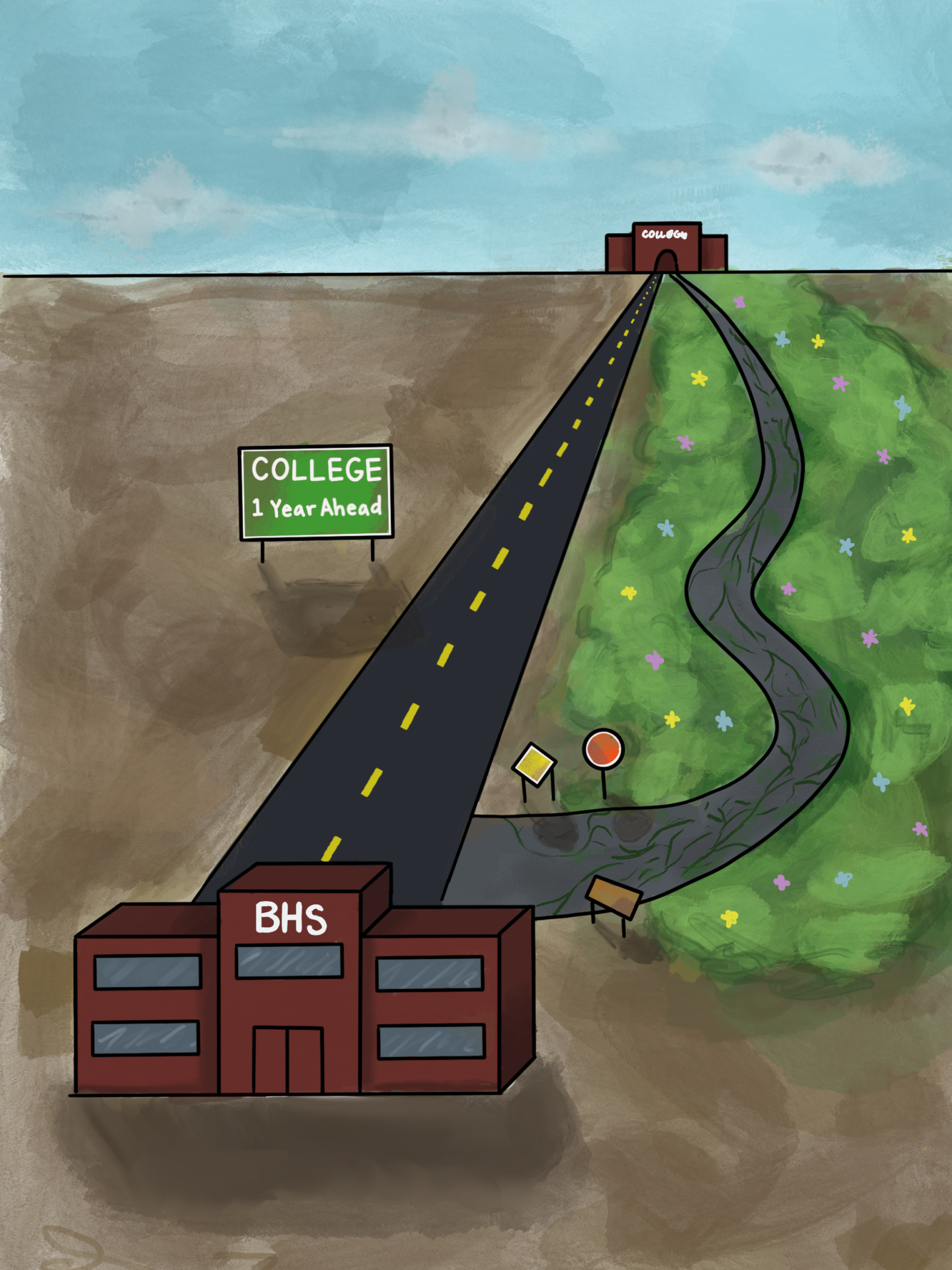As the school year reaches its end, seniors begin to solidify their plans for the future. While many may choose to attend college immediately after high school, some, like Ellery Hoffman, a student in Academic Choice (AC), are taking a gap year.
“I got the idea really early,” Hoffman said. “It seemed weird for me, in the place I … am now, to rush into college, especially with the pandemic, and so I decided that it would be better to take a little bit of a break, learn more about life, and have more experiences and travel and work.”
Hoffman explained that there were several factors behind his decision, including his learning disability. Hoffman said he has difficulty concentrating and experiences hyperfixation in the classroom, which can compound school-related stress, so he wanted to take a break.
He added that the pandemic contributed to his decision, as it created stress and limited social interaction and development. Hoffman’s primary goals for the gap year are to mature and to better himself.
“Especially with the pandemic, you kind of lose a little bit of social development,” Hoffman said. “I'd love to make up for that time and become someone that is more of a person and less of a teenager. Nothing wrong with being a teenager, but I would love to be able to have a bunch of experiences and make friends and do all that stuff, and be kind of free from the responsibilities of school and just focus on trying to become better and more well-rounded.”
Hoffman described his plans for the gap year, which include visiting his sister in Europe, working at Chez Panisse, and applying to college in the fall.
His family has been accepting and encouraging of his decision to take a gap year. Still, Hoffman has found that most people assume that all students will go to college directly after high school.
“It’s not so much the pressure to go to college, as [much as] the assumption that everyone will,” Hoffman said. “You definitely encounter teachers and students [who] will assume that college is the next step, which is not always true, but is often true.”
Hoffman described his excitement for his gap year, and encouraged students to take a gap year if they want to, despite it not being the traditional route.
“I'm excited for the experiences I'm going to have,” he said. “I don't think it's for everybody, but if you ever do end up choosing to take a gap year, anybody, it's a super cool thing that is totally a valid option, and something that you'll probably super enjoy.”
Disa Krong, a senior in AC, has also decided to take a gap year in order to discover what career they want to pursue. They are also young for their grade, and don’t want to be seventeen while studying far away from their parents.
“I was kind of afraid that I would go to college aimlessly,” Krong said. “I think it's a good idea to have some time to solidify what I want to do, and my plans for the future, and all that 'finding yourself' ... before I go off to college.”
Like Hoffman, Krong is planning to work and visit family in Europe, accompanied by their friend, who will also take a gap year.
“A lot of my friends are taking gap years, so I don't feel too left out or left behind or anything,” Krong said. “I'm sure some people have a different demographic of friends. If someone has a bunch of friends who are going to college next year, and they're taking a gap year, that must feel kind of isolating.”
Though many of their friends are taking gap years, they are still uncommon and lack representation, according to Krong.
“I definitely feel like there is that pressure [to go immediately to college],” Krong said. “You don't really hear about people taking gap years that often [when] growing up, so it doesn't really seem like an option. I definitely thought that I was just going to go straight to college after high school, but I think it's a smart decision for me.”
Krong reflected on how college is viewed as essential, and while it may be beneficial, other experiences that can occur during a gap year are also tremendously important, such as working, traveling, or simply taking time for yourself.
“College is seen as something that everyone has to do, and for a lot of people, college is a really good idea, but also, it's not everything,” Krong said. “Having real life, real world experience is really important, when you're working or anything like that, so you're not so wet behind the ears, and also, just having time by yourself, when you're not constantly busy with something or worried about grades.”





